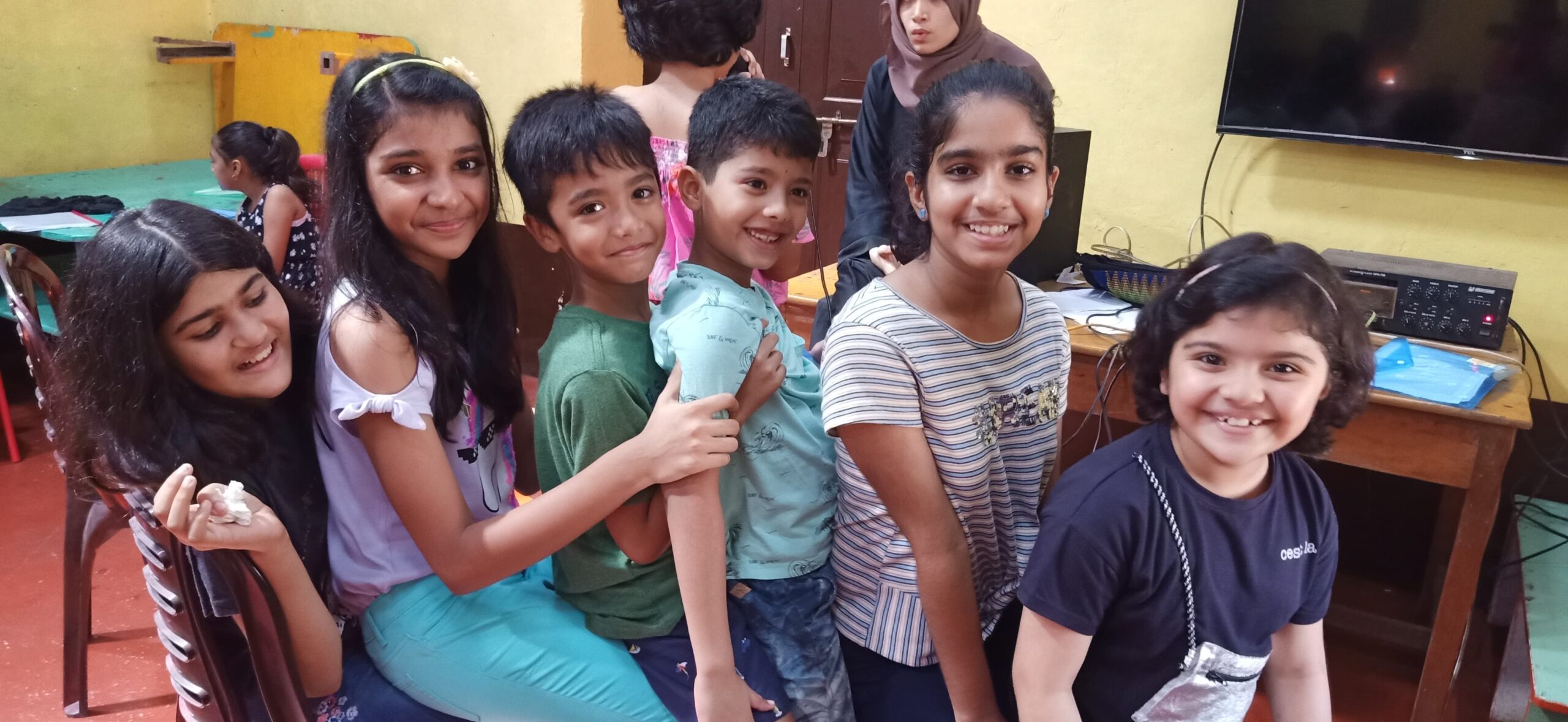We proudly claim to live in a modern 21st-century world. Digitalized, fast-paced, and full of advancements. And yet, we also admit we’re living in Kaliyug—an age often associated with decline in values and imbalance. Strange paradox, isn’t it?
But perhaps it’s not so strange when we look at what’s happening with our children today. They are, in many ways, the most silent victims of this so-called progress.
In our attempt to “fix” the education system—improving it, streamlining it, innovating it—we often find ourselves up against government rules, social trends, and institutional pressures. But here’s the question: who is really paying the price?
What Is Childhood Made Of?
When we say childhood, what comes to mind?
Laughter in the backyard, fighting over a swing, running around with cousins, spontaneous play in the neighbourhood, scribbling on walls, making mistakes and learning from them. These are not luxury moments. They are the essential building blocks of growth—emotional, social, physical, and intellectual.
As educators and parents attempt to recreate this balance, we find ourselves stuck in a rat race—consciously or not. And the irony? We’re not unaware of it. Today’s parents are highly educated, exposed to global parenting perspectives, and well-informed.

Yet, the simplest truths are being overlooked—such as the importance of chronological age in a child’s development.
More and more parents today are worried about “losing a year.” But what exactly is being lost?
A year of play? A year of unhurried learning? A year of joy? Why does waiting for readiness feel like falling behind?
Children are being pushed into higher grades like we’re skipping levels in a video game. It’s like microwaving a cake instead of baking it slowly in the oven. Sure, you might get something that looks ready on the outside—but inside, it’s still raw. And no matter how hungry you are, that’s not something anyone truly enjoys or benefits from.
Why the Rush?
Is parenting so difficult now that we no longer want to wait? Or has the pace of life become so fast that we no longer trust the process of slow, steady learning?
Think about this: We all know that premature babies, though precious and full of potential, require extra care. A full-term baby, on the other hand, comes into the world more equipped to thrive. That same principle applies to mental, emotional, and academic readiness.
Just because a child can speak fluently or recognize letters doesn’t mean they’re ready for the academic, social, and emotional demands of the next class.
And here’s what they miss when we fast-forward them too soon—especially if they skip something as crucial as Senior Kindergarten:
What Gets Skipped When We Skip a Year?
- Comprehension Skills: Beyond recognizing words, children need time to understand what they read and hear—connecting ideas, expressing opinions, and engaging in thoughtful conversations.
- Fine Motor Skills: Fingers need time to develop the strength and coordination for writing. Jumping grades often means pushing them into writing tasks they aren’t physically ready for—resulting in frustration and avoidance.
- Social Maturity: Learning to share, take turns, resolve conflicts, and build friendships is a journey—not a checkbox. These cannot be rushed.
- Emotional Regulation: The ability to handle mistakes, accept feedback, express feelings, and manage disappointment is built slowly, through safe environments and supportive adults.
- Learning Readiness: Concepts in math, language, and life skills must be experienced—not just taught. A rushed child may memorize, but not understand.
- Confidence & Identity: When children are pushed into a space where they constantly struggle to keep up, it quietly chips away at their self-worth.
From a child’s perspective, this pressure is overwhelming. Because when a child is made to cope for one academic year too early, we might be unknowingly setting them up to cope for a lifetime—with stress, with gaps in learning, with emotional insecurities. What should’ve been a nurturing year turns into a race they didn’t choose to run.
It’s like being told to bloom before their petals are ready. And what happens to a flower that’s forced open before time? It may never blossom fully—or worse, it stays a bud forever.

So Why Do Schools Agree?
The truth is: many schools know this rush is harmful. But they often give in—worried about losing admissions, fearful of backlash from ambitious parents, or trying to keep up with competing institutions. What should be a safe, nurturing space becomes a numbers game. Admissions, demands, and deadlines overshadow what’s truly best for the child.
One year. Just one year.
Is it really a loss? Or could it be the greatest gift?
The Real Win: Giving Time
That extra year in Senior Kindergarten or pre-school could be the year your child:
- Falls in love with reading
- Learns to hold a pencil with confidence
- Makes a best friend
- Develops empathy and curiosity
- Builds resilience through small failures
- Finds joy in learning, not fear of it
As parents and educators, we must remember: childhood is not a race.
It is not a checklist to complete. It is not a shortcut to success.
It is the foundation of everything your child will become.
Let us not rob them of the gift of time. Let us not rush what is meant to unfold naturally. Let us not treat learning like a competition.
Because when we plant a seed, we wait for it to grow. We water it, we nurture it, we give it light. We don’t pull it upward, hoping it’ll reach the sky faster.
So let’s do the same with our children.
Let them bloom.
Let them thrive.
Let them grow—in their own time.

Recent Comments